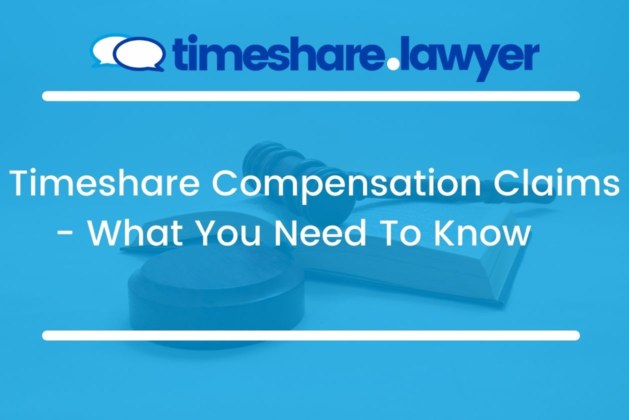There are an increasing number of successful cases in which people who claim compensation against timeshare resorts have won. However, there are particular criteria that your case must meet in order to be eligible. The good news is that recent cases in the Spanish Supreme Court have set a precedent, which – in legal terms – means that similar cases that come thereafter should also be treated according to the judgment laid out in the precedent case.
The series of precedents that have emerged over the few years have been instrumental in facilitating timeshare holders to claim compensation against timeshare resorts.
As a brief overview of the main criteria to look out for, here’s the top reasons that those who claim compensation against timeshare resorts are winning their cases:
1. In Perpetuity Contracts
We write about ‘in perpetuity’ contracts a lot, because they have been a serious problem for timeshare holders for decades. An ‘in perpetuity’ contract is one where the contract term exceeds fifty years, which is the maximum legal limit.
If no end date is specified in your contract, or the date is over fifty years since the date you signed, then you are likely to have a pretty clear cut claim for compensation.
The difficulty, of course, lies in contracts which are not in excess of fifty years, but will likely exceed the holder’s lifetime. In these cases, the responsibility for the timeshare, including all fees, falls on the offspring of the timeshare holder. This can be incredibly stressful, particularly if the offspring is in no way financially able to pay these fees. Equally, as the timeshare holder ages, they are unlikely to be able to go on their timeshare holiday, and the fees may be crippling – the stress of which can seriously impact an older person’s health.
Fortunately, there are ways around this. But you’ll need a specialist in timeshare law to go over your contract with a fine-toothed comb and explain the options to you.
2. Floating Weeks
Floating weeks timeshare contracts have come under the spotlight, with a significant pattern forming of floating week timeshares being deemed illegal.
The idea of floating week timeshare is the timeshare holder is given a range of weeks to choose from each year. They then have to log in and book their desired week as soon as possible, in competition with other floating week timeshare holders. It should mean more flexibility for holiday dates, but instead, it results in a messy, unpredictable battle between owners of the same timeshare property. These conflicts often result in people not being able to access the property at all. It goes without saying that you will still be expected to pay your fees.
It is this fact, that people find themselves unable to access a timeshare holiday at all, that is putting floating weeks under the spotlight.
Anfi timeshare is one company that is really feeling the pain from the Law as a result of their floating week contracts. In one case, they were ordered to pay 25,460 euros, plus legal fees and interests in compensation.
3. Timeshare Points
The thing about timeshare points clubs is the sneakiness with which they are sold. These are contracts that are often repackaged as ‘exclusive membership clubs’ or suchlike, with the word ‘timeshare’ mysteriously absent. But make no mistake about it, this is a timeshare, and not a good one to fall into.
In the majority of cases, these ‘exclusive clubs’ are managed by timeshare Trusts, and – whilst they will make all manner of promises to you – are principally aimed at benefiting the timeshare resort developers… not you.
One of the main complaints is that signees have to pay a massive upfront fee, followed by more mandatory fees that are then converted into points in your account. It is with these points that you secure holiday accommodation. What’s the point, though, when you could just book a normal holiday, and usually for far less?
Like Floating Weeks contracts, timeshare points systems work by securing dates where there is availability, which is far from guaranteed. Like Floating Weeks, it can be thoroughly frustrating to secure any holiday at all through the Timeshare Points system.
There has been many a person to claim compensation against timeshare resorts for the unfairness of a timeshare points system. In some cases, the resort has been found to offer priority to its own staff. In others, the resorts have simply decided not to make the resort available at particular times. In the worst of cases, the accommodation requested simply did not even exist!
4. Mis-Selling, Misrepresentation, and Cooling-Off Periods
You should also think carefully about whether you may have been mis-sold your timeshare. If it was presented to you as any different to what it really was, then this is a misrepresentation. Where this can be proved (which is, in practice, easier said than done), nullification and compensation may be due.
If you weren’t offered a cooling off period (time to reflect and consider whether you’d made the right decision) of a minimum of 14 days after signing, your contract will be null and void. So, too, if you handed over any money whatsoever during this cooling off period.
These are the main factors that influence your ability to claim compensation against timeshare resorts. Nonetheless, as more and more cases come through the courts, new criteria emerge as to what is and isn’t permissible. Whatever your situation, if you speak to a specialist timeshare expert, we’ll be able to tell you exactly where you stand, and help you with the next steps.
Why You Should Never Make Your Timeshare Compensation Claim Alone
Do you have suspicions that your timeshare was misrepresented or unlawfully sold to you? Have you decided that you’re going to take on the timeshare companies in search of a timeshare compensation claim and nullification? As tempting as it may seem, going up against timeshare law on your own could be a dangerous choice.
It is essential for you to consult a timeshare lawyer for many reasons. Here are five of them:
-
You Can’t Just Walk Away
If you are unhappy with the terms of your timeshare agreement, or believe that the contract you signed is unlawful, you cannot just stop paying and walk away. If you do this, firstly, you will get nothing back which you have already paid. Secondly, access to the timeshare resort will be taken away, along with your right to rent it out to others. Thirdly, and most damagingly, the timeshare company may then pass your details onto the major credit agencies. At that point. your information can be turned over to a collection agency in an attempt to recover the fees due to the resort. Bear in mind that they will also add late fees on top of that which you already owe.
-
Identify your Case
The process of identifying and acting against unlawful or misleading contracts requires an intricate knowledge of the timeshare industry, as well as contract law. Some of the more underhand clauses may be hidden deep within the contract, or dressed up to seem like they are saying something very different to what, in reality, they are. Without a timeshare lawyer there is a good chance you will miss areas of the contract with deserve closer examination, thus greatly limiting your chances of success.
-
Avoiding Obstacles
Timeshare companies are not in the business of giving compensation and voided contracts. They will do anything they can to avoid having to do so. If you go up against these companies without a strong knowledge of the industry and the law, you are likely to fall victim to the many defensive tactics they employ. A timeshare lawyer with good knowledge of contract law will be able to speed the process up by avoiding all of the obstacles that the timeshare companies will try and hit you with.
-
Finding Time
Taking on timeshare law can be a long, complicated process, and the amount of work that goes into such a claim is enormous. Trying to juggle processing a claim with work and family responsibilities can feel impossible. It will lead to tasks being rushed and, therefore, the careful eye and attention to detail that is required will be missing. Such situations might result in stress levels going up, damaging your personal and professional life, not to mention hampering the strength of your claim. A good timeshare lawyer will be able to handle the work for you. You won’t even need to worry about.
-
Weakness of Solitude
By going it alone, you are entering a David and Goliath situation. Yes, that time David won, but that’s rarely the outcome in the real world. Attempting to beat the timeshare companies at their own game, all by yourself with little to no resources, is a battle you are destined to fail. Only with the clout of a well-organised timeshare law firm, whose reputation for winning cases is well known, will you be able to match the strength and reach of those you are fighting against.
If you think your timeshare might have been misrepresented or unlawfully sold to you, don’t try to win on your own. Get in touch with us here and we will gladly review your contract for you.
About Timeshare Compensation Claims
What criteria must you meet in order to be successful in timeshare compensation claims?
If a timeshare/resort company has breached its contract and have mislead you into buying a timeshare, this can include the things that were said when you signed your timeshare contract that might not have been written down. For example, any promises that were made during the timeshare presentation.
Also, if the company where you purchased the timeshare left out vital information which would affect your buying decision. For example, if you were told that your timeshare is close to the beach, but in reality it was next to a noisy road, this would count as a misleading omission.
So what should you do?
If you feel that you have a claim and have been misled into buying a timeshare you should complain straight away. DO NOT use your timeshare without making a complaint as it will be a hard fight to argue that your agreement should be terminated.
What If I Paid By Credit Card?
If you paid by credit card you can also claim. The purchase must be over £100 and under £30,000.00 and your first action should be to contact the company first. If you are unhappy with their response, your next step would be to contact your credit card company.
Detail the amount spent, when you made the purchase, how you bought the timeshare. Make sure you include copy of receipts and other paperwork that details the purchase. Also provide information on how the contract was breached. It’s worth keeping a diary of the dates and times you called the timeshare/resort company with regards to your claim enquiry. Make sure you give your credit card company as much detail as possible as to why you are seeking a refund.
If your credit card company rejects your claim and you strongly believe that their decision was unfair, the next step would be to contact the Financial Ombudsman Service.
Talk to Timeshare.Lawyer
If you’re still confused on how to put your timeshare claim for compensation forward, please do not hesitate to contact us.



